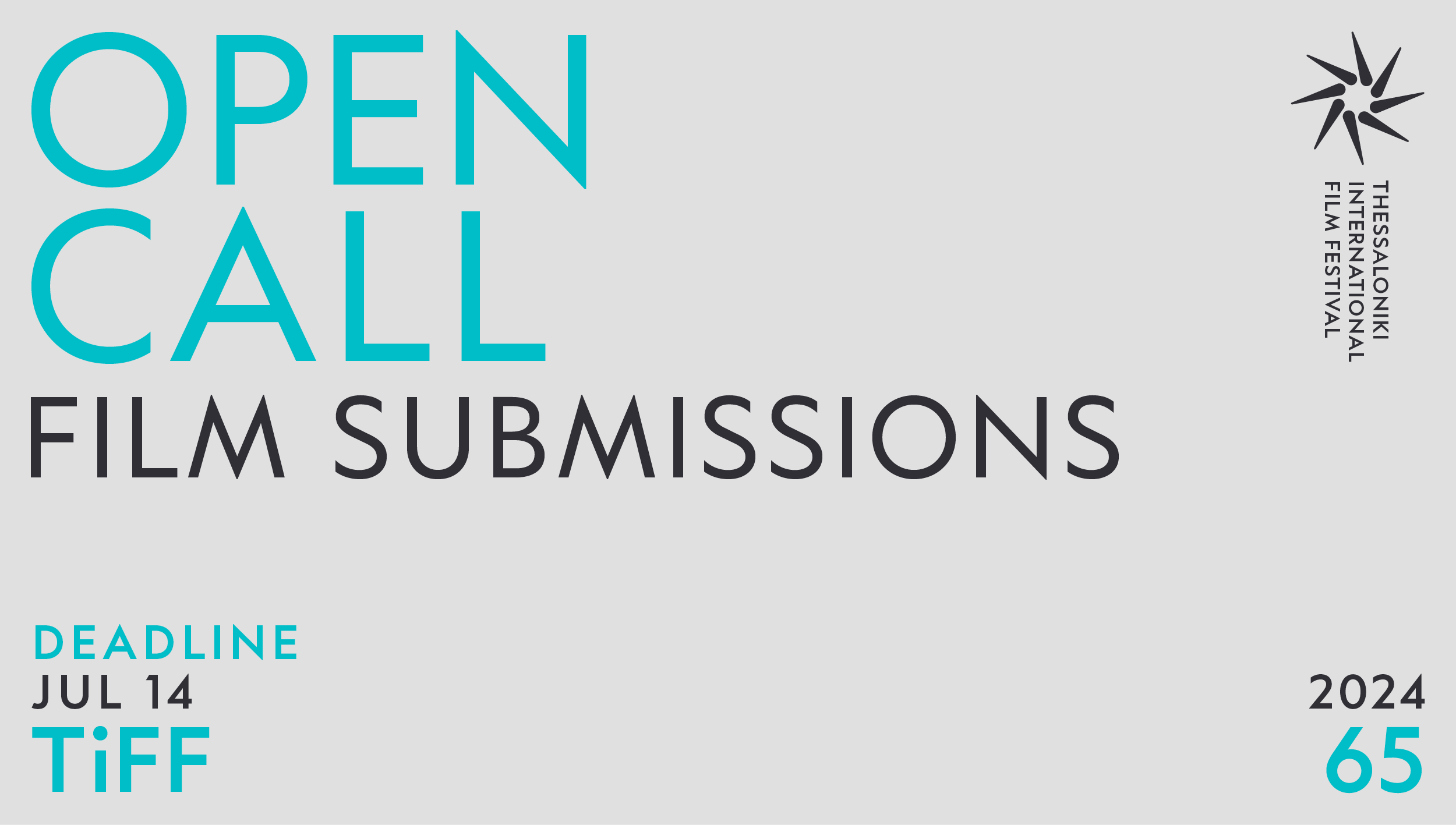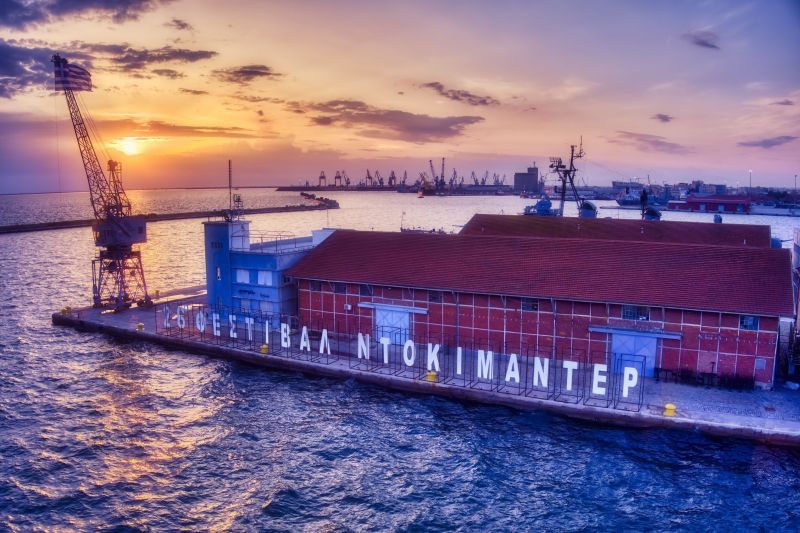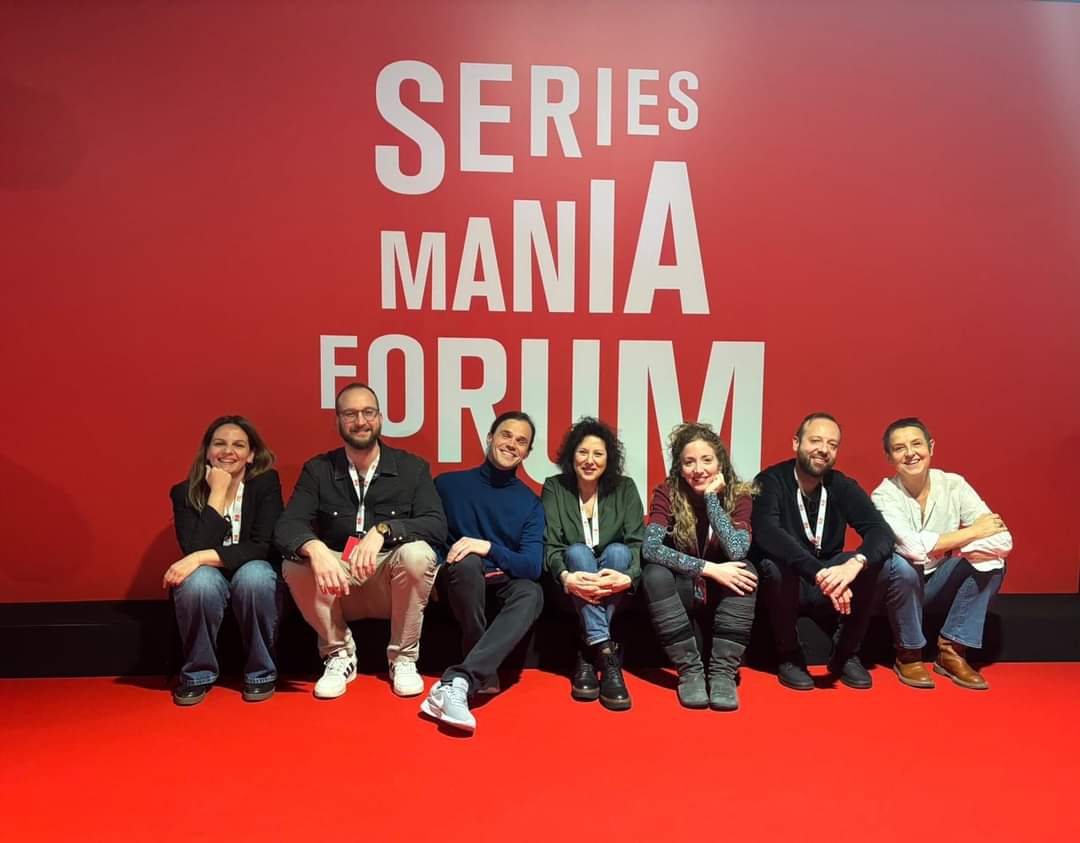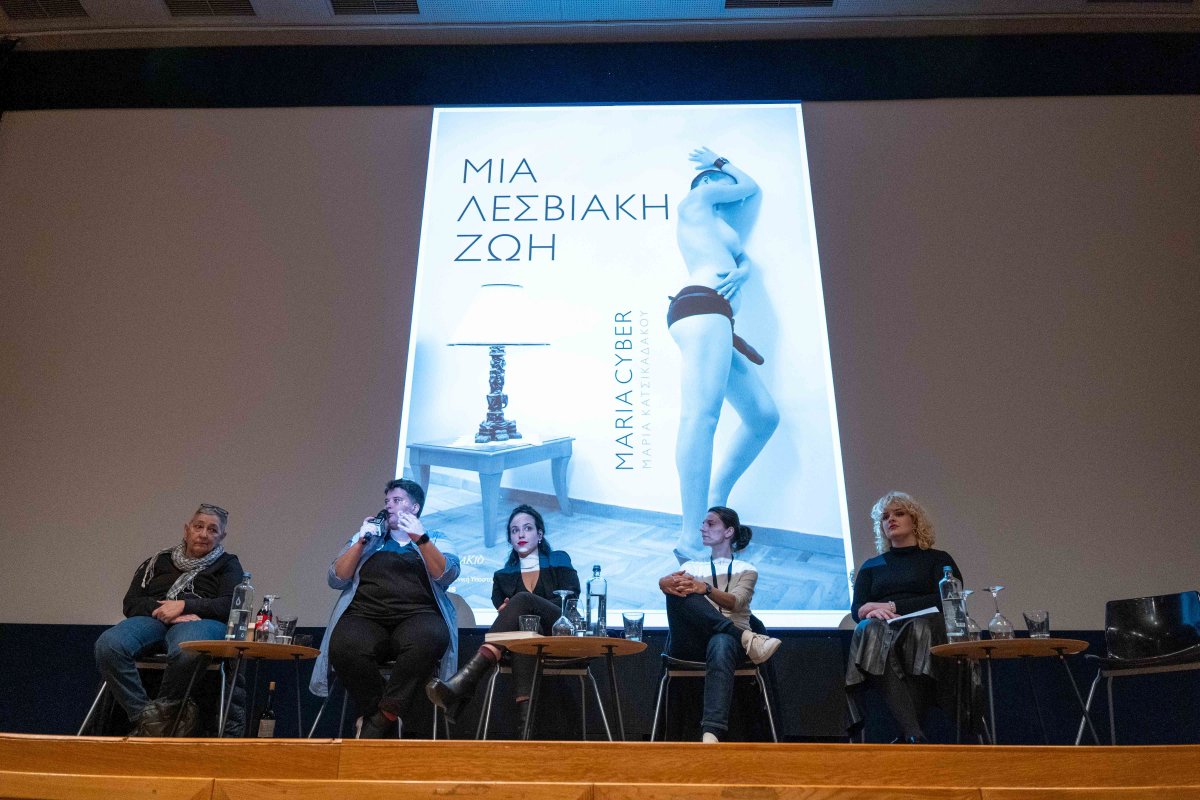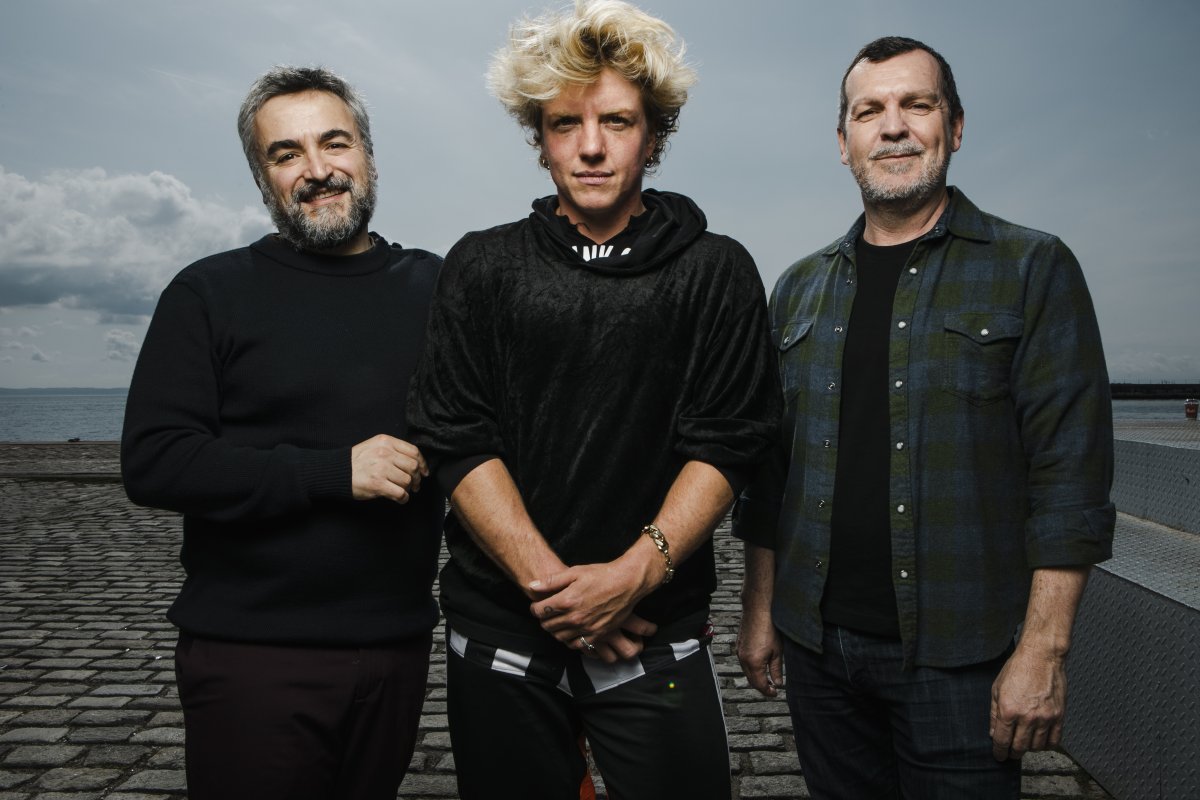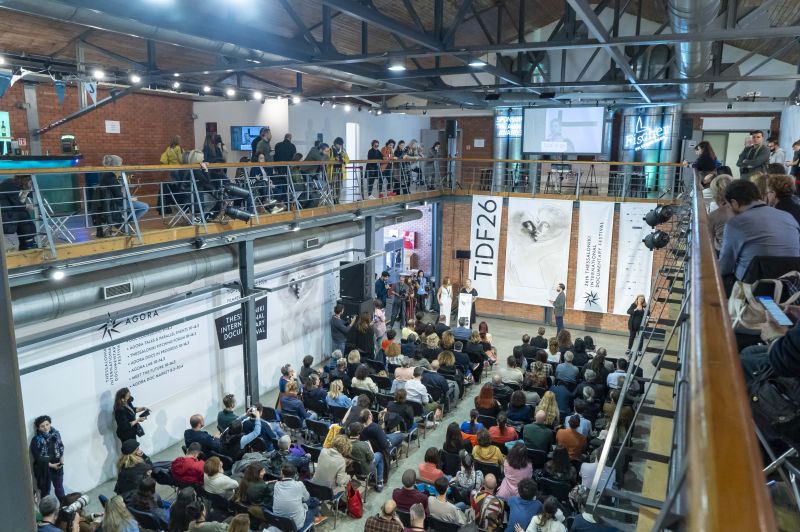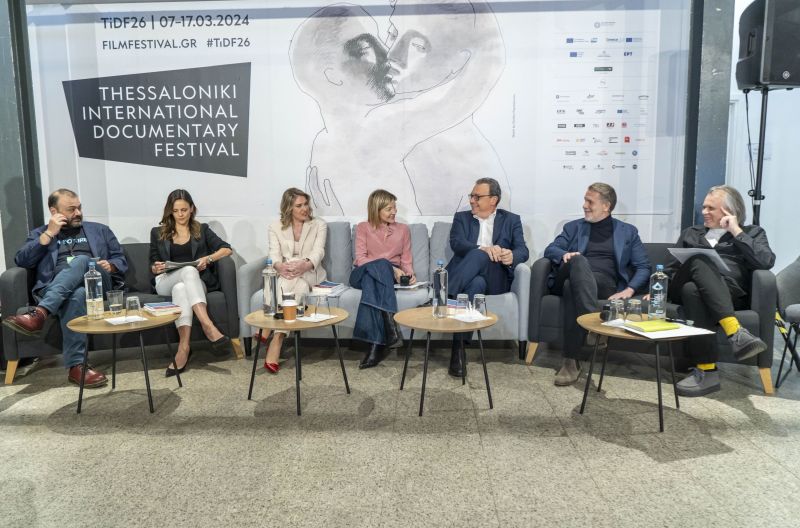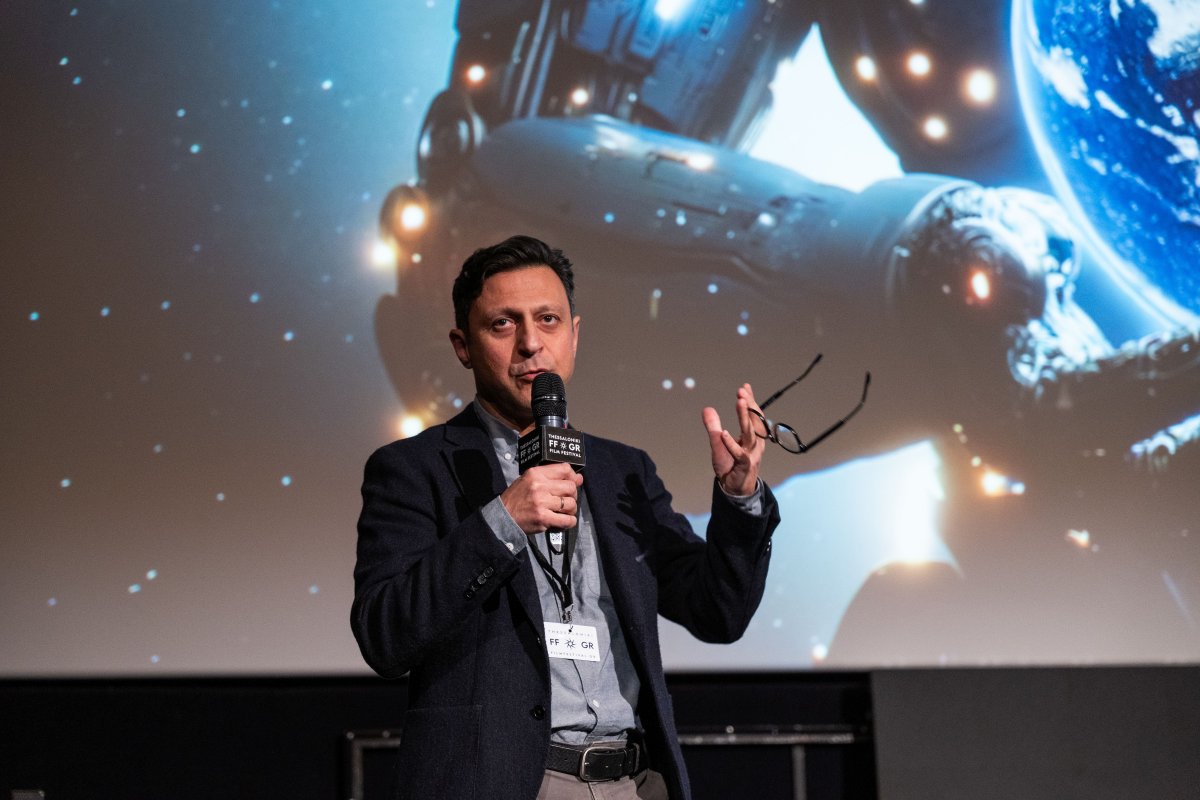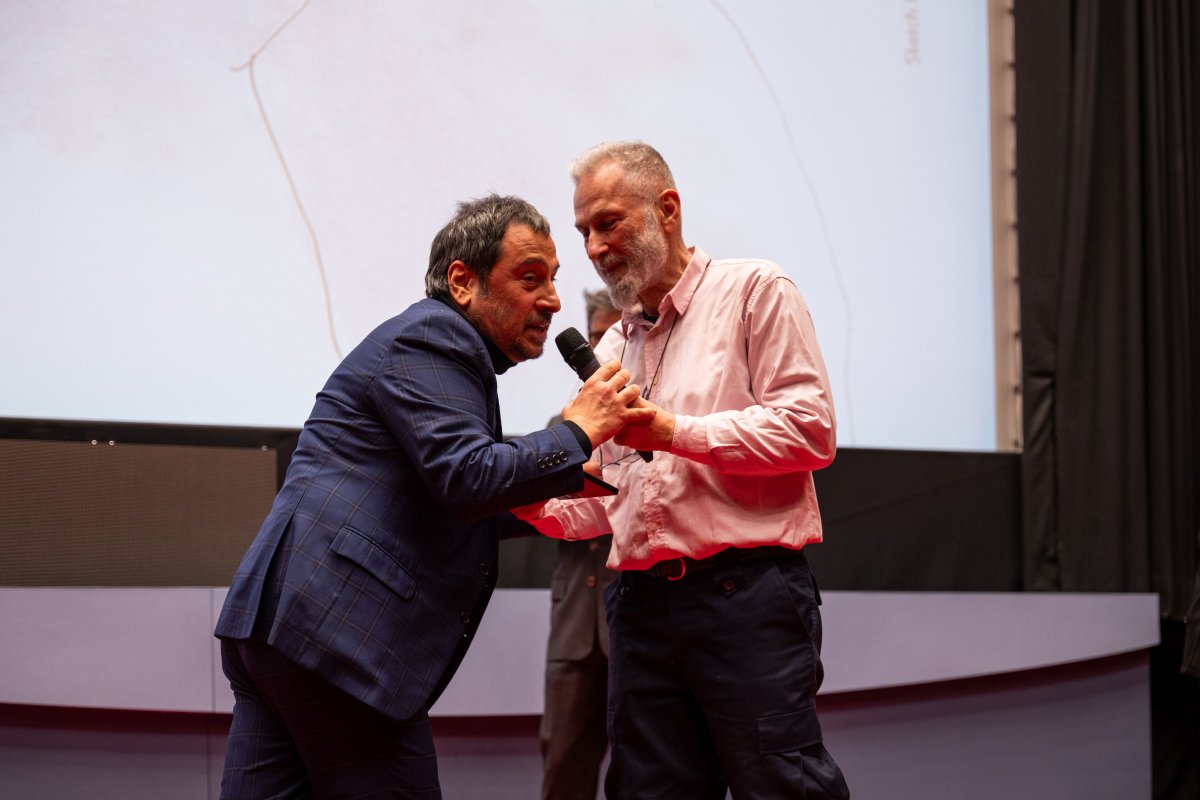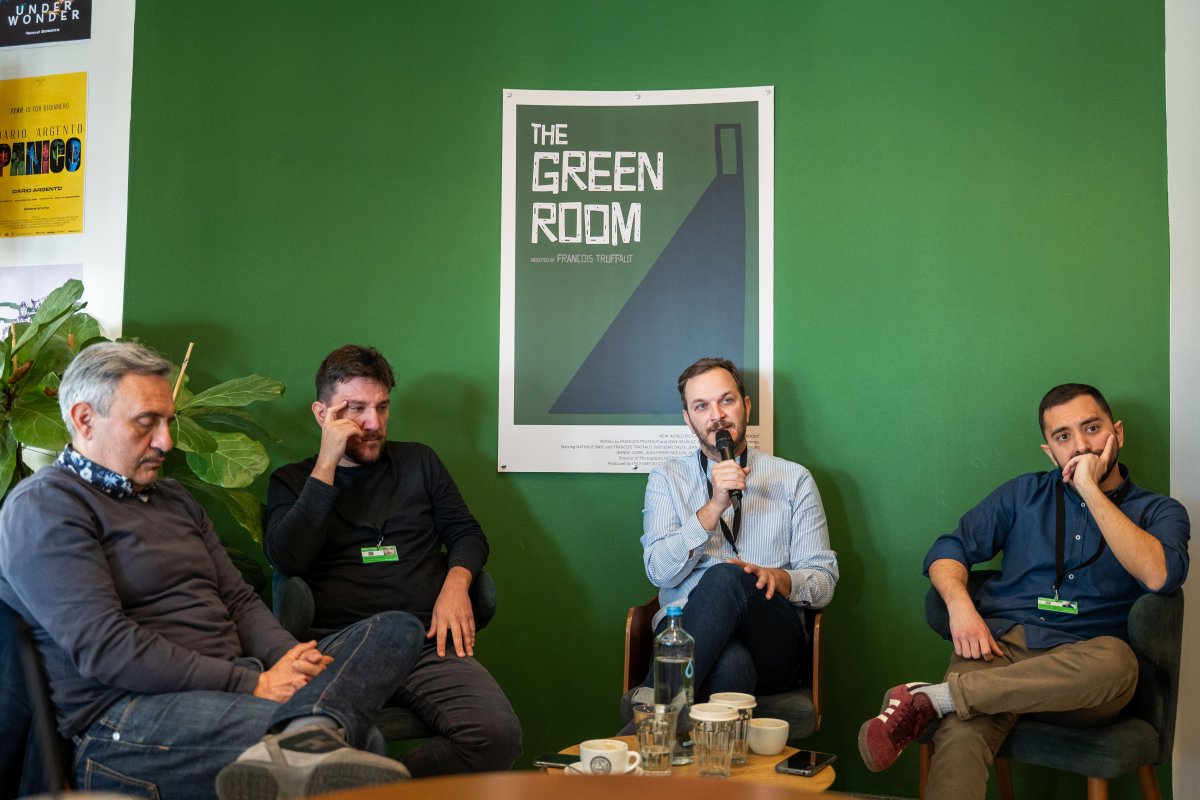21st THESSALONIKI DOCUMENTARY FESTIVAL [1-10/3/2019]
Market Talks
Greek Documentary Association: The Future of Documentary in Our Region
What is the future of documentary in Southeastern Europe? Which are the structures and institutions boosting documentary production in each country? Which actions and programs support documentaries? What steps can the region’s filmmakers make to build common ground for collaboration? These are some of the main points in the discussion that took place on Thursday 7 March 2019 at Warehouse C, as part of the “Market Talks” session of the 21st Thessaloniki Documentary Festival.
The event was organized by the Thessaloniki Documentary Festival and the Greek Documentary Association (GDA) and moderated by DGA president, director Marianna Economou. Katarzyna Wilk from Polish Docs, Ana Otasević from Doc Serbia, Neda Milanova from Balkan Documentary Center (Bulgaria), Patrizia Mancini, International Development Officer of Sunny Side of the Doc (France), as well as the producer Rea Apostolides from GDA, were the speakers. Vassilis Kosmopoulos, the general director of Greek Film Centre, was on the panel as well.
Marianna Economou thanked TDF and especially the head of Agora Yianna Sarri, for the collaboration and went on to note: “The idea for this meeting came from the need to reach beyond borders and seek people and organizations we can join forces and collaborate with in co-production. GDA is a new organization. It was founded in 2013 by professional filmmakers sharing the same passion for documentaries and wishing for Greek documentary to open its wings; the goal is to boost documentary popularity and viewership in the broader region. While documentary funding and distribution becomes more and more difficult, we believe that Europe and our region have many opportunities to showcase new filmmakers. That’s why we organized this meeting, to exchange ideas and experiences which may lead to possible partnerships”.
The speakers shared their experiences through the actions and initiatives they support with the aim of boosting documentary. Katarzyna Wilk spoke first, presenting Polish Docs: “It is a project by the non-profit organization Krakow Film Foundation, based in Krakow, Poland. It is associated with Krakow Film Festival, one of the oldest short film, animation and documentary festivals in Europe. Our need to boost Polish documentary was born in this particular festival. In the last few years we have screened many great films and sought ways to increase our reach worldwide. Krakow Film Foundation has similar funding programs. We have also founded KFF Sales & Promotion to promote these films in international festivals and film markets. With Polish Docs we are trying to showcase Polish documentaries through special screenings, retrospectives, film directors and producers’ presentation and promotion in festivals and markets. This year we launched a new initiative in collaboration with Polish TV called Polish Docs Pro, with the aim of promoting Polish documentaries to the world”.
Ana Otasević was the next to speak. She talked about Doc Serbia, noting that: “It is a relatively new organization; however we are satisfied with its effectiveness in such a short time. At first we turned to Film Center Serbia to showcase the significance of documentaries, and managed to disjoin fiction and documentary productions funding. Another victory was the level of funding. This support is starting to bear fruits and both films and their makers have reached international festivals and received awards in the last few years. We have now documentaries made in China, Brazil, the Middle East, and this is new to us. We try to be realistic, think creatively and recognize that directors play a major role in their films”.
Patricia Mancini made a short presentation of Sunny Side of the Doc, noting that it is a professionals-only market which promotes co-productions and the selling of films. As she added, “The event takes place every June in the last 30 years at the French city La Rochelle and lasts five days, hosting 2,000 film professionals, as well as film commissioners, TV networks and cultural institutions. During the event, five different pitching sessions are held on culture, society, science, history, the environment, etc. Every day we host a meeting session for film professionals and the institutions, as well as open discussions and workshops. Our guests have the chance to meet these professionals and engage in profitable deals and collaborations. Since 2017 we have set up a special section on filmmakers’ interaction and contact with new technological tools and digital technology, consisting of separate market, screening and installation sections addressing cultural organizations in search of new ways to give shape to and promote their content through documentary”.
Neda Milanova from Balkan Documentary Center explained its actions towards film professionals: “Our goal is to make collaborations and promote documentaries in the international film market. In the last few years we realized that there is need for new filmmakers, but no field for their education and support. Therefore, we decided to support new documentary filmmakers from our region. We are also interested in their education and training, while we also have a pitching forum where anyone interested can find co-funding suggestions and win a monetary prize. Last but not least, we have the domestic market where all projects are being presented and productions dealing with Balkans can participate in”.
Following Mrs Milanova’s comments, Rea Apostolides talked about the significance of collaborations and co-productions with foreign companies, noting: “As a filmmaker and producer, I have to say that co-production is the only alternative in order to make films of the highest-quality content and thematology. However, despite what the speakers said before about public supporting structures at co-production level, there is no such thing in Greece”.
On that point, Vassilis Kosmopoulos made mention of the ways that Greek Film Centre supports documentaries. “We deal with the regulation relating to funding programs, which is under revision as to the part concerning documentaries. In this revision we plan to include documentaries in the minority co-production support program. Also, since there is a lack of production planning, we intend to either include or adapt this part especially for documentaries. We want to give equal emphasis on documentary and fiction films in all our funding programs”, Mr Kosmopoulos said.
He explained that there is a broader tendency in Europe to encourage collaborations and co-productions between countries, and stressed: “In the first half of 2019, the Romanian Presidency of the Council of the European Union is dealing with enhancing collaboration through co-productions in the audiovisual sector. In fact, we are invited to take part as an institution to a conference that will be held in about two weeks. In a regional level, we have a very good relationship with the other film centers of the region and the relative initiatives. We are trying to adjust the support framework in order to improve the conditions of collaboration with the rest of the European institutions. Our purpose is give priority to co-productions with neighboring Balkan film centers. In fact, we are discussing the possibility of bilateral or trilateral cooperation with the other countries”. As to the time horizon of evaluating the proposals submitted to GFC, Mr Kosmopoulos noted that previously this process was slow. However, “this is not the case anymore; now we can evaluate proposals submitted 11 months earlier, and we estimate that we will soon be able to respond and evaluate them almost promptly”.
Consequently, proposals were made as to funding programs for films coming from the speakers’ countries. These programs’ traits are different as to priorities, but have similarities as well. In particular, in Poland, Italy and France, co-productions may refer to film center or even TV network funding, depending on whether they are relatively minor co-productions or their producers and filmmakers come from these countries. The films’ theme vary, since in Poland, i.e., they focus on global matters, in Italy or France they are interested in particular subjects (environment, climate change, sciences, etc), while in Bulgaria they focus on stories of local interest.
Madeleine Avramoussis, commissioning director at French TV channel Arte France, intervened to talk about the significance of cross-national collaboration. “Arte, based in Strasbourg, is a network in the heart of the EU, in a region bordering many countries. For a number of years we conduct programs that support co-productions in neighboring countries. Filmmakers can connect to the network and get in touch with producers participating in it. These contacts could be the basis for a new round of collaborations with the appropriate EU funding tools within the region. That’s how we started as well. We are a TV network which is the fruit of two countries’ synergies and co-productions. Another project of ours is Grande Documentaire, a special fund where German and French institutions assume major productions such as a historical series, a fiction or a documentary film. My advice to filmmakers is to address the organizations which provide funding in each country and start a round of contacts and collaborations with the other countries. The most important is to build a regional cooperation platform”.



